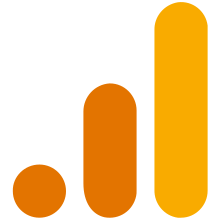Google[1] Analytics, a potent web analytics tool by Google, equips website owners with the capability to monitor and scrutinize their internet[2] traffic. Essential data including session length, bounce rate, and the number of pages viewed per session are provided. The tool also seamlessly integrates with Google Ads for efficient campaign tracking and delivers e-commerce reporting. Google Analytics functions through a JavaScript-based tracking code and employs page tags for data gathering. It has progressed through several versions, with Google Analytics 4 (GA4) being the most recent. GA4 introduces innovative features like predictive metrics and heightened customizability. It’s also compatible with mobile applications, offering SDKs for both iOS and Android. Despite minor privacy concerns and possible performance issues, Google Analytics remains the leading web analytics service, favored by a significant number of top-rated websites. Google offers extensive support and training resources for users, establishing it as a preferred tool for web analytics.
Google Analytics is a web analytics service offered by Google that tracks and reports website traffic and also the mobile app traffic & events, currently as a platform inside the Google Marketing Platform brand. Google launched the service in November 2005 after acquiring Urchin.
 | |
Type of site | Web analytics |
|---|---|
| Owner | |
| URL | analytics |
| Commercial | Yes |
| Registration | Required |
| Launched | November 14, 2005 |
| Current status | Active |
As of 2019, Google Analytics is the most widely used web analytics service on the web. Google Analytics provides an SDK that allows gathering usage data from iOS and Android apps, known as Google Analytics for Mobile Apps.
Google Analytics has undergone many updates since its inception and is currently on its 4th iteration—GA4. GA4 is the default Google Analytics installation, and is the renamed version for the (App + Web) Property that Google released in 2019 in a Beta form. GA4 has also replaced Universal Analytics (UA). One notable feature of GA4 is a natural integration with Google's BigQuery—a feature previously only available with the enterprise GA 360. This move indicates efforts by Google to integrate GA and its free users into their wider cloud offering.
As of July 1, 2023, Universal Analytics ceased collecting new data, with Google Analytics 4 succeeding it as the primary analytics platform. Google had previously announced this change in March 2022. While users had the ability to use Universal Analytics up to the July 2023 deadline, no new data has been added to UA since its sunset. On July 1, 2024, all users, including GA 360, will lose access to all Universal Analytics properties.
